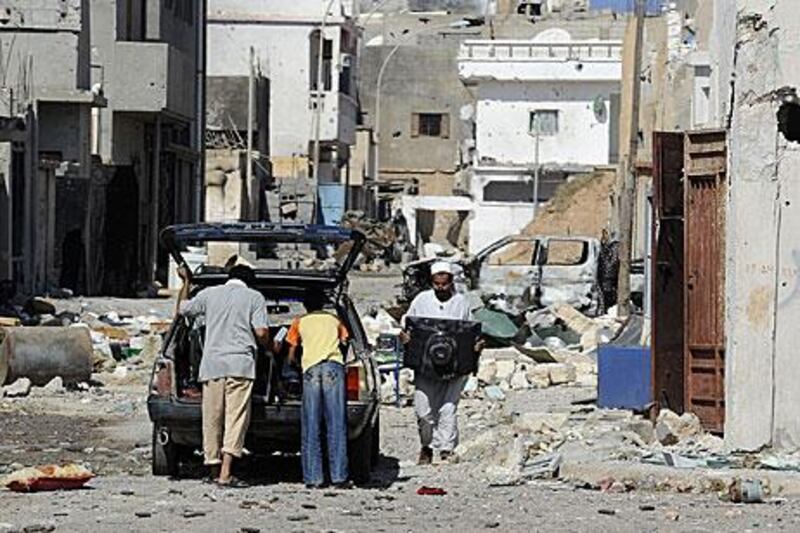CAIRO // The combination of widespread destruction across Libya and the largest proven oil reserves in Africa would ordinarily presage a building boom.
Looking back: Libya's 2011
A year ago, friends met to toast a birthday, little realising the revolt against Qaddafi was about to strike, dividing them into rebels or servants of the regime.
Looking ahead: Libya's 2012. Read article
Libya's timeline of events Read article
[ MORE ON LIBYA ]
But the biggest obstacle for the Libyan economy, which is also bolstered by about US$200 billion (Dh735bn) in savings, is its capacity to step up production and construction.
Only in the last few years did Muammar Qaddafi, Libya's ruler until his death in October in the custody of the National Transitional Council (NTC) forces, begin to open up the economy to investment from the outside world.
Now, it needs to dramatically expand everything from banking to infrastructure to prepare for its rise as a North African economic power.
"There aren't even enough cranes in the country to start anything near the level of construction needed," said Alaa El Huni, an investment banker and a former financial consultant to the NTC. "On every level, from ability to construct, labour, the capacity of the ports, to the amount of machinery, we are not able to absorb the amount of investment we'd like to."
The first major steps of the interim government have been to increase oil production back to its pre-revolution levels.
So far, it has hit about one million barrels a day and is aiming to ramp that up to 1.6m by the end of the year. But broader plans to begin rebuilding cities such as Sirte and Bani Walid, the final strongholds of Qaddafi loyalists that were heavily destroyed, as well as Misurata, where NTC fighters were most severaly attacked, have been sidelined by the more pressing security concerns.
While Qaddafi's troops have been routed and many imprisoned, rival militias are vying for control of power in a way that is a major disincentive for businesses to start investing in the country, Mr El Huni said.
Business delegations from across Asia, Europe, North America and the Middle East have begun travelling to Libya to scout out opportunities, but Mr El Huni said they would be slow in taking the risk of plowing their own money into equipment and setting up local affiliates until they had more political and security certainty.
Ronald Bruce St John, the author of several books on Libya, said the belief that some countries, such as Qatar, the UAE, the US and France - major providers of aid and support to the NTC during the revolution - would benefit more than others in rebuilding could be mistaken.
"Whoever is elected to run the government will direct foreign policy in the best interests of Libya," he said. "As for talk of European countries getting preferential treatment in contracts, we may see a little, but quickly the Libyans will return to being Libyans: hard negotiators."
* With additional reporting by John Thorne





